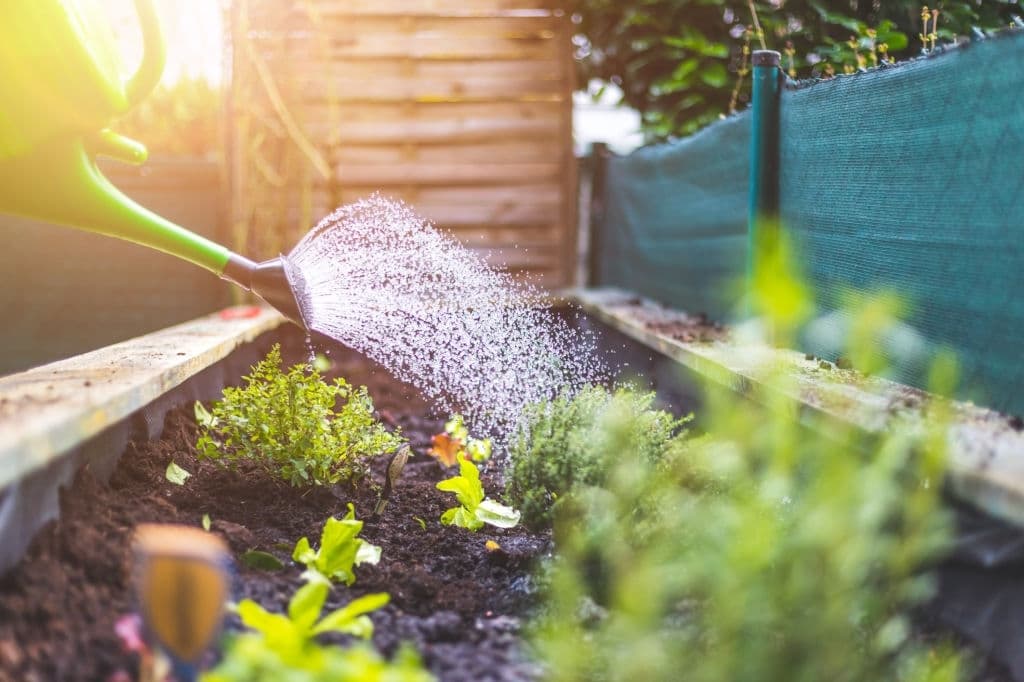Surely you get an aesthetic pleasure while admiring your garden. The fact is that many people spend a lot of time growing plants every year. But the problem is that not everyone knows the important basics. In addition, your plants may require special care. But how do you make your garden perfect? Well, here are seven garden care tips for every beginner.
Table of Contents
1. Check the Health of Your Plants
If you are a beginner, you are probably thinking of transplanting plants from nurseries. This option is pretty straightforward as you don’t have to adhere to any special temperature conditions. But remember that you should check the health of your plants. Pay attention to the rhizome, stem, or leaves. For example, your plant should be free of stains, fungal spores, or other signs of disease. If you ignore any nuances, you risk infecting the garden with some disease.
2. Water Properly

Your plants need proper watering. However, you must adhere to the correct regimen during the growing season. Find out the required amount of liquid for the proper growth of your plants in advance. Then you can make a watering plan and maintain the required soil moisture. By the way, you can buy a drip irrigation system and not waste time on routine activities. But what if you’re an entrepreneur and don’t have a lot of time to choose garden tools and devices? Then you should consider outsourcing. This option can be useful for many people. Check these seven benefits that outsourcing can bring to one’s business. Surely you can delegate some responsibilities to make time for your garden.
3. Treat Your Soil
Did you know that soil degrades over time? The fact is that all plants need minerals and nutrients. The soil contains all the required components in a limited amount. Fertilizing your garden is important in allowing all plants to grow well. It is best to know in advance what organic or mineral supplements are needed to make your garden perfect. But do not forget that over-fertilizing the soil can also harm your plants. For example, nitrogen fertilizers can be toxic in large quantities. So this is why you should read the instructions beforehand.
4. Perform Plant Maintenance
Plant maintenance is extremely important for any plant. Remember to trim off dried leaves, stems, and buds. Some shrubs will likely need to be trimmed to form the main crown. Plus, some of your flowers may be sore, so you should inspect the leaves to prevent mold or stains. You may also sometimes need to transplant flowers to another part of the garden to provide the required amount of sunlight for photosynthesis.
5. Destroy the Weeds
There are thousands of weeds that can harm your garden. Some of them integrate into the root system of plants and consume most of the moisture, minerals, and other elements. Some weeds can twine around other plants and “choke them” or shade to get more sunlight. That is why you should kill all the weeds you see in your garden. You are probably interested in seeing only the plants, trees and flowers in your garden. Plus, no one wants to spend more money on fertilizing the soil.
6. Protect From Animals
Some plants are ideal targets for rodents, hares, and some birds. You probably don’t want your garden to look perfect. Then how about a wire fence or a network? In addition, you can use a repellent that will repel most animals and birds. But how to choose such a chemical component correctly? Most likely, you should find out what animals live in your area. However, even a fence will be enough.
7. Try Raised Beds
How about raised beds or garden containers? Surely you have heard at least once about these methods of growing plants. The fact is that both options are ideal for whimsical plants and specific drainage. In addition, raised beds will help you avoid the appearance of some weeds and diseases. All you need to do is a plan in advance how all the segments of your garden will look like.
Is It Worth Spending a Lot of Money on Plant Maintenance?
Luckily, you don’t have to spend a lot of money on your garden. It is enough to draw up a plan for watering, weed control, and other activities. Then, with the right maintenance, your garden will look perfect. After that, you need to buy plants and fertilizers. And don’t forget to study the growth characteristics of your chosen plants.
Final Words
Anyone can create the perfect garden with the right diligence and patience. All of the above tips work great, especially if you’re not lazy. Your plants will look very beautiful if you balance the moisture and fertilization of the soil. Try to start with small steps to gradually move on to the most important aspects for your garden to delight you every day.




